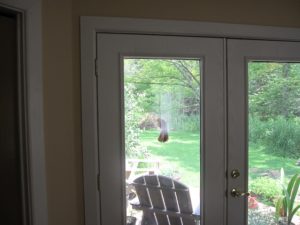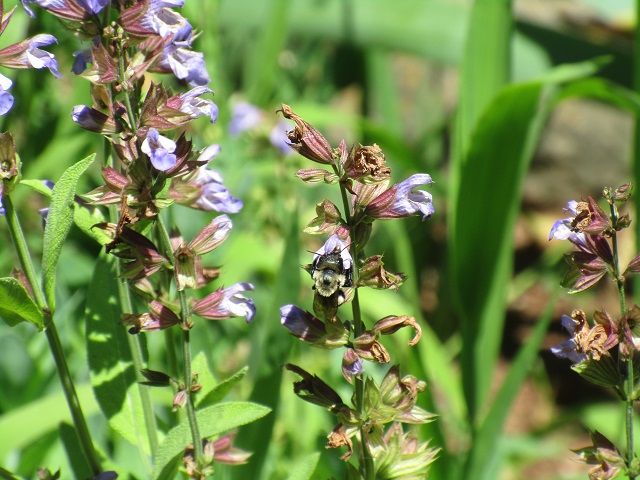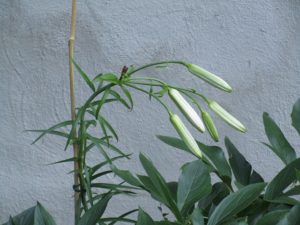June hums and thrums into summer.
Bees, dragonflies, hummingbirds and butterflies – swallowtails, fritillaries, painted ladies – fill the sunny daylit air. Moths – luna, sphinx and their motley myriad ilk – bats and fireflies light the night.
One of the charms this season has been the fondly familiar individuals we get to know from the quotidian chirping of the nesting birds. Billary, the relentless male cardinal, bashes himself into all ground floor windows twice daily, leaving crusty little crimson fluffs of virility up and down the glass panes. He dive bombs fearlessly directly into my face from the witch hazel across from the desk window, pecking fiercely back and forth along the window sill, then off again to assault the casement around the corner. His liquid chirp and familiar bumping wake me each morning.
 We have learned to distinguish the wren’s bold out-sized call each afternoon as it circles the arc of the meadow. Little tiny brown thing making its might yawp. Little Ricky, the indigo bunting shaped like a turquoise torpedo, carries on an intermittent Carribean conversation atop the Sycamore snag. It’s the perfect bird clock, much better than the ones that hang inside.
We have learned to distinguish the wren’s bold out-sized call each afternoon as it circles the arc of the meadow. Little tiny brown thing making its might yawp. Little Ricky, the indigo bunting shaped like a turquoise torpedo, carries on an intermittent Carribean conversation atop the Sycamore snag. It’s the perfect bird clock, much better than the ones that hang inside.
Only two stalks of the old Chinese ‘Regale’ (the one P.G. Wilson risked his life for on the mule trail) have survived a handful of late frosts despite John’s faithful sheeting. Our low spot by the creek is a classic pocket for the cold air. This has been the absolute worst lily season ever, coinciding with surrounding vineyards that have suffered here in central Virginia and western Albemarle County. Somehow the peaches seem to have escaped and fragrant early yellow clings are on the local market. We bought a beautiful little quart over the weekend from Spring Valley Orchard just up the road.
A bad year for lily flowers does not mean the plant itself is harmed, just as frosted early magnolia flowers don’t harm the tree. The foliage will continue to feed the bulb during the summer as long as it is green and the bulb will grow and form flowers for next spring.


